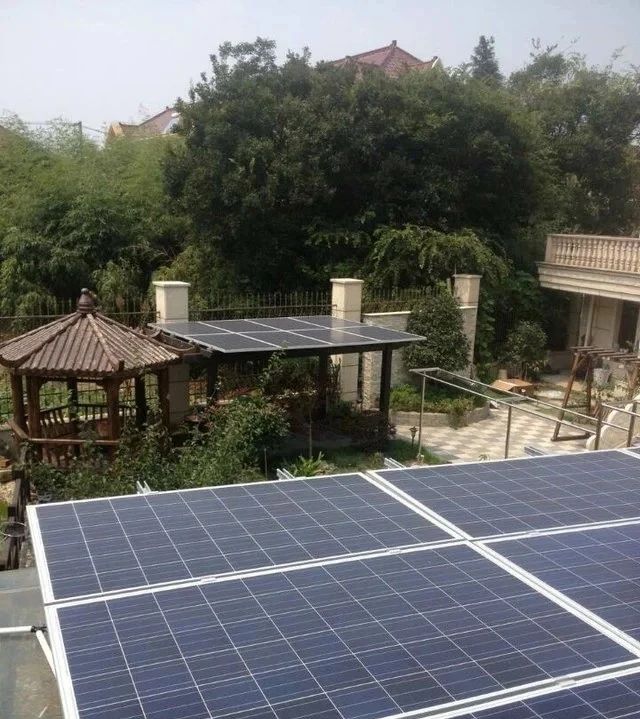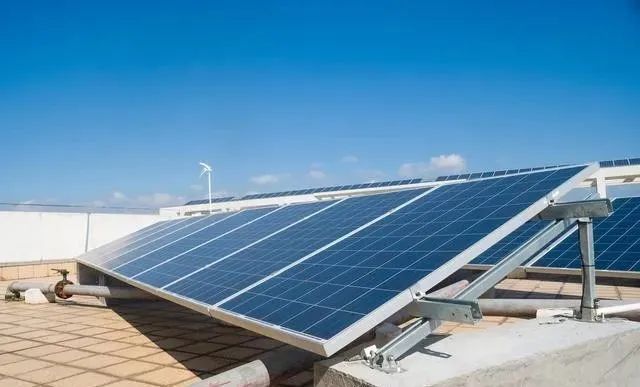Photovoltaic (PV) power generation harnesses sunlight to produce electricity, representing a clean and renewable energy source. Despite the inherent stability and reliability of PV systems, various factors can influence their performance. Addressing these factors is essential for optimizing efficiency and maximizing economic returns.
Solar Radiation Intensity
Solar radiation intensity is a primary factor affecting PV power generation. The amount and spectral characteristics of solar radiation vary with weather conditions. Higher irradiance results in increased energy production. For instance, GREEN POWER Mono Solar Panels, with efficiencies up to 20.86%, are engineered to perform well under diverse irradiance conditions, ensuring optimal energy output even during overcast weather.
Installation Angle and Orientation
The tilt angle and orientation of solar panels significantly impact the angle of incidence and efficiency of solar energy absorption. The accumulation of solar radiation differs based on the installation angle, leading to variations in power generation. Adjusting the tilt and orientation according to local sunlight conditions and geographical latitude can maximize energy output. Proper installation of GREEN POWER panels, considering their dimensions (1755x1038x35 mm) and weight (19.5 kg), enhances overall efficiency.
Conversion Efficiency of Solar Cells
The conversion efficiency of solar panels is a critical factor in energy production. Poor-quality panels can suffer from micro-cracks and back sheet aging, drastically reducing efficiency. High-efficiency panels, like GREEN POWER Mono Solar Panels, offer conversion efficiencies ranging from 20.04% to 20.86%, producing more electricity under the same sunlight conditions.
Quality of Inverters
Solar inverters are crucial components of PV systems, converting direct current (DC) to alternating current (AC). High-quality inverters with higher conversion efficiencies significantly impact overall power output. Advanced inverters, integrated with smart monitoring and data analysis capabilities, optimize power generation and issue warnings for potential problems, thereby enhancing the solar power station's performance.
Combination Losses
Series and parallel connections of solar panels can lead to current and voltage losses due to mismatched panel characteristics. To minimize combination losses:
1. Select panels with matching current ratings for series connections.
2. Ensure consistent degradation characteristics among panels.
Using GREEN POWER Mono Solar Panels, which exhibit minimal variance in electrical characteristics, can help reduce such losses.
Weather Conditions
Weather conditions, including temperature, humidity, and wind speed, influence PV system efficiency. Clear, sunny weather is ideal for solar power generation, while overcast or rainy conditions reduce energy output. Solar panel efficiency decreases with rising temperatures, so even in regions with high irradiance, heat can suppress maximum efficiency. The operating temperature range for GREEN POWER panels (-40°C to 85°C) ensures they function effectively in various climates.
Shading Effects
Shading from dust, shadows, snow, vegetation, buildings, and other obstructions can reduce sunlight reaching the panels, affecting their output and causing hot spots. Installing bypass diodes in solar panels can prevent hot spots in series connections. Ensuring minimal shading on GREEN POWER panels, with their robust construction and high PID resistance, is crucial for maintaining optimal performance.
Panel Cleaning
Regular cleaning of solar panels is vital for maintaining efficiency. Dust and debris accumulation can reduce light penetration and increase surface temperature, lowering energy output. Proper cleaning practices for GREEN POWER panels include:
1. Avoiding shadows during cleaning to prevent hot spot formation.
2. Using appropriate cleaning materials to avoid damaging the panel surface.
3. Cleaning at low irradiance levels and avoiding extreme weather conditions to ensure safety and effectiveness.
Maintenance and Management
The energy output of a PV system depends on proper maintenance and management. Regular cleaning, inspection, and maintenance prevent potential failures, identify issues early, and maintain consistent energy production. Periodic checks of the junction box (≥ IP67 protection) and using quality materials in GREEN POWER panels ensure long-term reliability and efficiency.
Conclusion
Optimizing the performance of photovoltaic systems involves addressing various factors, from solar radiation and panel quality to installation and maintenance practices. Understanding these elements is crucial for enhancing efficiency and maximizing economic benefits. Employing high-efficiency panels like GREEN POWER Mono Solar Panels, combined with strategic installation and diligent maintenance, can significantly boost the productivity and sustainability of solar energy systems.
---
If you're interested in learning more about our solar energy storage offerings, we encourage you to explore our product line. We offer a range of panels and battery that are designed for various applications and budgets, so you're sure to find the right solution for your needs.
Website:www.fgreenpv.com
Email:Info@fgreenpv.com
WhatsApp:+86 17311228539
Post time: Jun-29-2024














